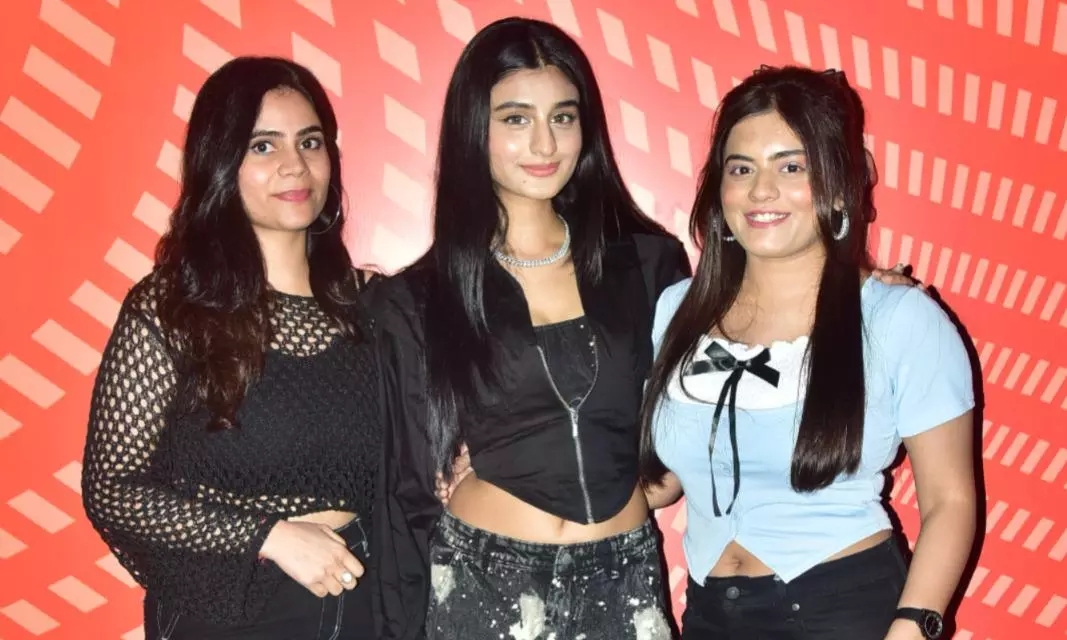Women Gamers Emerging as the Future Torchbearers

Hyderabad: In DreamHack 2024, a young girl, Jennie, held up a sign that screamed “You inspire us.” She wasn’t cheering for the usual suspects of gaming royalty. Rather, she was celebrating a new kind of hero—a female pro gamer who, at that precise moment, was rewriting the rules of who belongs in the arena.
While it was Payal Gaming or Payal Dhare, the fan was calling out for, one of the most recognisable figures in Indian esports.
But Payal wasn’t the only one rewriting the rules. Alongside her were Pinkcess and Sherlock —names that have become synonymous in India with redefining the gaming world.
Dhwani Bhatt, known to her fans as Pinkcess, has made a space in battle royale games, earning over one lakh followers and growing. Sherlock, or Monica Jeph, is the FPS queen having amassed a loyal online audience of over 2.90 lakh. Together, they are among the growing number of women making their presence known in gaming.
According to Lumikai "State of India Interactive Media and Gaming Report-November", women now make up 44 per cent of India’s 591 million gamers, up from 41 per cent the year before. While many women prefer casual or hyper-casual games, there is a slow but steady movement towards competitive and paid genres. These women are a few such names who are redefining this movement.
When it comes to Payal Gaming, her 4.32 million followers represent just a fraction of her impact. Her journey began as a casual mobile gamer during her college days. Her career took off during the pandemic, after she started her YouTube channel, encouraged by friends. This eventually propelled her to full-time esports stardom.
“When I started, people weren’t ready to accept that a woman could play games or stream. There was criticism, but the love from the audience kept me going,” she explains.
From sitting at a table with the Prime Minister to discuss the gaming industry to being nominated for international awards, Payal seems to have done it all.
Monica’s journey was different. Her exceptional skills in PUBG Mobile often left people doubting her identity.
“I used to play PUBG Mobile, and because I was an introvert, I wouldn’t talk much,” Monica recalls with a smile. “People assumed that I was a boy because I played so well. When they found out that I was a girl, it surprised them. It was weird for them that a girl could play that well,” she says.
Her talent didn’t just earn her a huge following but also made her a quiet force in the gaming world. Yet, the challenges remain.
“People still look at women in competitive gaming like we don’t belong there. It gets frustrating but I know my gameplay can say what I don’t,” she adds.
Similarly, Dhwani Bhatt also didn’t grow up with gaming as an obvious choice.
“In India, girls aren’t gifted video games. As kids, we get Barbie dolls or kitchen sets,” she says with a wry smile, while adding, “That mindset has to change.” Her journey of improvement in Valorant, from silver to ascendant ranks, mirrors her broader mission to prove that women can excel in gaming just as much as men.
“Even now, in games, male teammates will make jokes—‘Go to the kitchen’—and it’s not funny anymore. I reply with, ‘You go do mazduri. What are you doing here?’ It’s exhausting but also motivating. We’re constantly proving ourselves,” she points out.
Gaming is personal for Dhwani in more ways than one. She met her husband through Valorant, a story that she shares with a laugh.
“I was playing in a custom room with some gamer friends when he fell for my voice. He encouraged me to start a gaming channel, and the rest, as they say, is history. We’ve been married for two years now,” she says.
While each of these women has faced criticism and stereotypes—from outdated jokes to relentless scrutiny—they acknowledge the progress being made.
“A few years ago, there were only four or five female streamers in India,” Dhwani notes, and adds, “Now there are over a hundred, and it’s just the beginning.”
Monica chips in with “Events like DreamHack are important because they let people see us. They realise women are just as much a part of the gaming community as men.”
The Lumikai report also reveals that the average weekly time spent on gaming has gone up by 30 per cent, now reaching 13 hours. This shows just how much more people, including women, are investing in gaming.
“Gaming is for everyone,” Payal says. “Do what you love.” Dhwani agrees, saying, “Don’t give up gaming just because someone tells you to go to the kitchen. Keep playing and keep improving.”
With that the joystick of power has shifted, and it is not subtle.
And as they put it, “This is for every girl who thought she didn’t belong here” to realise that women are no longer the exception—they’re the future.

